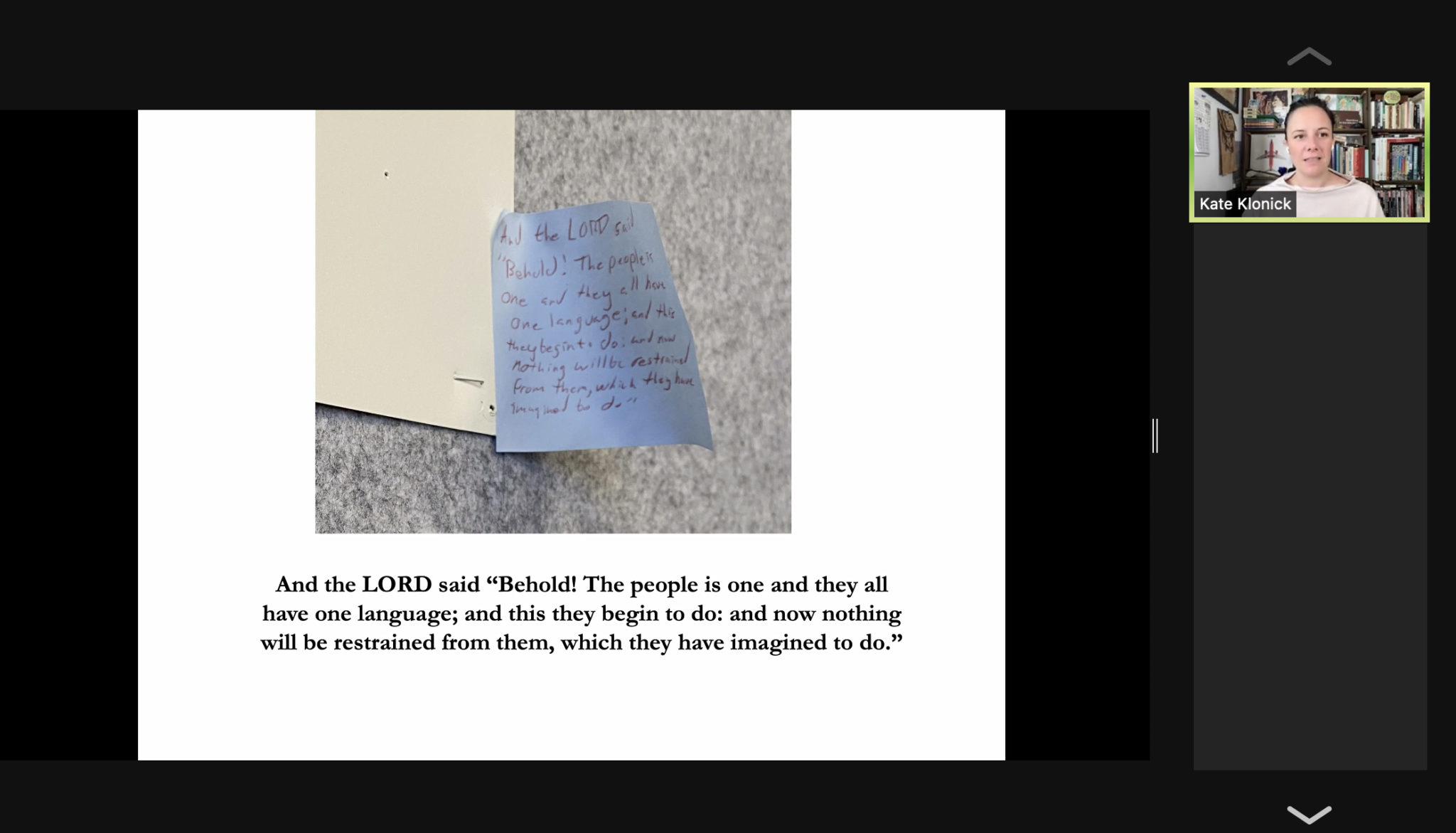Yale Law’s Wikimedia Initiative hosts discussion on Facebook Oversight Board
Kate Klonick discussed the work of The Facebook Oversight Board in the past year at a virtual event hosted by the Yale Information Society Project’s Wikimedia Initiative.

Sarah Cook, Contributing Photograher
On Tuesday afternoon, the day a whistleblower testified before Congress on Facebook’s practices, a Yale Law School group hosted a talk on the Facebook Oversight Board and its role in recent years.
Kate Klonick GRD ’18, assistant professor of Law at St. John’s University and affiliate fellow at the Yale Information Society Project, joined Yale Law School students Tuesday in a virtual discussion on the work of the Facebook Oversight Board, or OSB. Since issuing its first ruling in January 2021, the OSB — a coalition of independent overseers who work in collaboration with Facebook — has made decisions on 18 cases and offered insight to Facebook on numerous issues including the ban of former President Donald Trump from Facebook. Klonick wrote a paper on OSB for the Yale Law Journal in June 2020, and she spoke with students about her research and the power and potential of the OSB.
“Intermediary liability laws and the state of freedom of expression online affect everyone,” Mehtab Khan, event moderator and resident fellow in the Information Society Project told the News. “Yale Law School needs to be especially aware of the critical ways in which internet speech is being governed at the moment.”
OSB was created by Facebook, but is designed to make independent decisions on issues of content moderation, according to the OSB website. At the beginning of the discussion, Klonick went through the timeline that led to the creation of the OSB, beginning with the Cambridge Analytica scandal that led to Facebook announcing in Nov. 2020 its intention to form an independent body to regulate content. She also outlined the board’s procedure.
Klonick said that the board has to operate in separate groups based on time zones, and deliberations are more often over email than via Zoom. Khan told the News that the most surprising part of the discussion was the OSB’s efforts to include global perspectives.
“Although most of the public comments received on cases have been from the U.S. and Canada, it was encouraging to see participation from the global south,” Khan said, “It’ll be interesting to see how the board can help develop more nuanced approaches to governing speech outside the US.”
Klonick also discussed how OSB picks high-priority cases that touch on values that could then be applied to Facebook as a whole. Yet Klonick said it seems as though Facebook has not made many reforms based on the OSB’s recommendations.
“The oversight board at the end of the day doesn’t have any enforcement powers against the company Facebook,” said Nikolas Guggenberger, director of the Information Society Project. “So they very much depend on the company taking up advice or encouragement or decisions that the Facebook oversight board comes up with.”
In order to make decisions, the OSB uses the Community Standards of Facebook, the Five Core Values of Facebook and international human rights law — in that order, according to Klonick.
The OSB came into the limelight in January, when Facebook referred to OSB the question of whether to ban former President Donald Trump. On this issue, the OSB issued a partial agreement, agreeing Trump should be banned but arguing that Facebook must limit his ban to two years. By the time of the decision, Facebook had already issued an indefinite ban on Trump’s account.
Klonick also discussed the implications of the Wall Street Journal’s Facebook Files, a series of stories — released starting Sept. 13 — about Facebook’s internal knowledge about the problems caused by their platforms, such as mental health implications for young teenagers.
The reports include information from a whistleblower, Frances Haugen, who discussed with the Journal how hard it is to make reforms while working at Facebook. In the discussion, Klonick talked about how Facebook’s focus on user engagement makes it nearly impossible to reform the process of content moderation.
“[User engagement] is the only metric on your review, whether or not you’ve contributed to user management as an employee,” Klonick said, “So if you were a person who spends your day chasing around bad content on Facebook, it makes it look like you are bad for metrics. People do not get promoted off this type of work.”
Yet Klonick said the OSB’s creation gave power to many of the people who wanted to reform Facebook from the inside. She said that upon the Board’s creation, many employees were “thrilled,” as they felt it gave legitimacy to their push for integrity within the company.
Abby Lemert LAW ’23 interned for OSB this past summer and agreed with Klonick on the potential harm caused by the focus on user engagement at Facebook.
“[Facebook’s focus on user engagement] prevents Facebook from relying on Board decisions that would materialate harm to Facebook’s underlying levels of user engagement,” Lemert said. “To me, it’s sort of this catch-22 that you can’t ultimately get around and one of the pitfalls of self-regulation over this issue of content moderation.”
Guggenberger also pointed to the recent Facebook Files as examples that the problems at Facebook may be more pervasive than simple internal changes can solve.
But with a network of over two billion users, Guggenberger added, it remains difficult for Facebook to effectively moderate content on a case-by-case basis.
“At the end of the day I think one of the unaddressed problems is just Facebook’s position in the market in public discourse,” Guggenberger said, “To put it bluntly, Facebook has gone way out of proportion and has grown way too large, and I doubt that there are internal measures that one could mandate that would fix Facebook’s systemic flaws.”
The Yale Information Society Project hosts speakers every Tuesday and Thursday, and the Wikimedia Initiative hosts events about once a month. Klonick and Guggenberger will be moderating another Information Society Project event, “The Facebook Files: What’s Next?” on Oct. 7 at 6 p.m. that will address the recent reporting from the Wall Street Journal.








